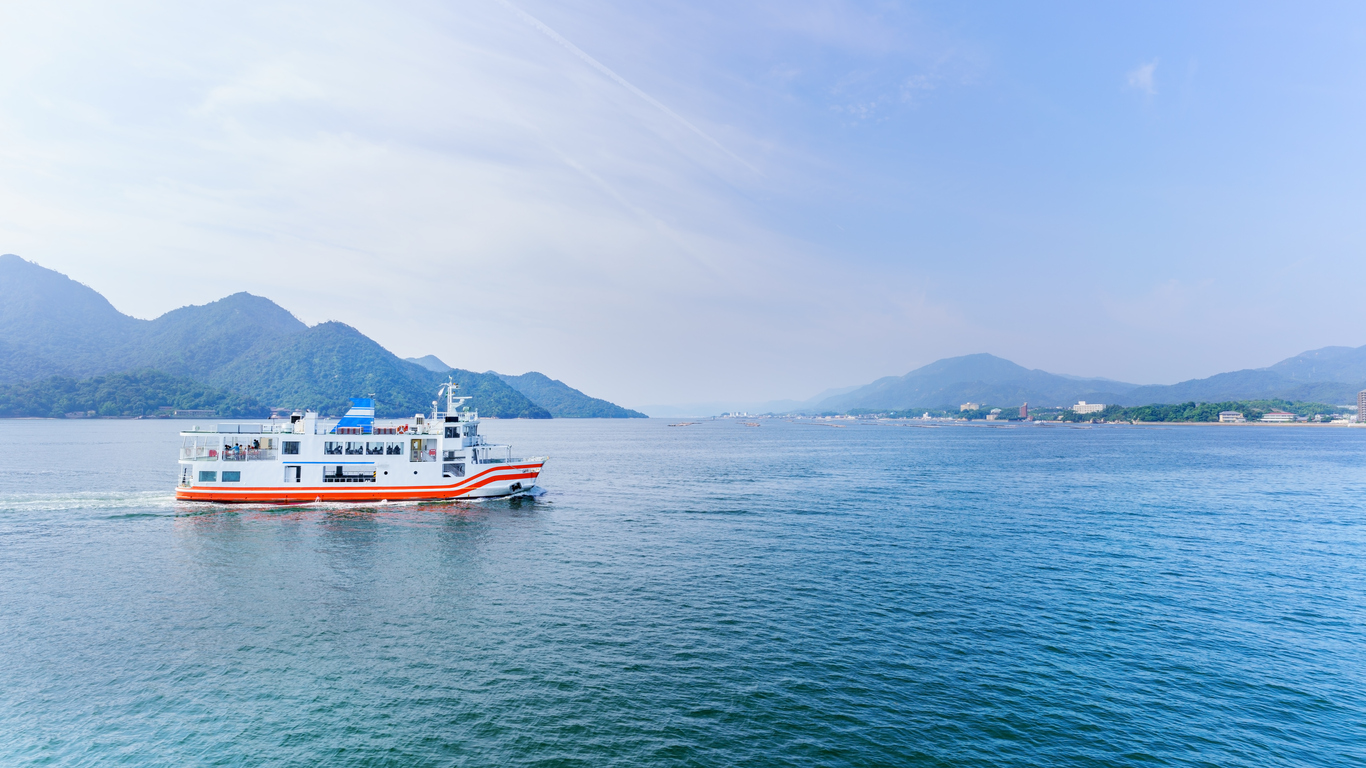2022/02/28
One Step in Advance for the Fulfillment of Unmanned Operation; Demonstration Test of Autonomous Navigation on a Large Ferry Successfully Completed

(The original article in Japanese was posted on January 28, 2022)
Two pioneering demonstration tests were successfully completed in "MEGURI 2040" project that has been promoted by The Nippon Foundation for the development and verification of fully autonomous ship navigation. On January 11, as one of the MEGURI 2040 project consortia, a group of companies including Marubeni Corporation, Tryangle Inc., Mitsui E&S Shipbuilding Co., Ltd., and City of Yokosuka successfully conducted a demonstration test of fully autonomous navigation of a small tourism boat which navigated a roughly 1.7-kilometer route from departure to docking on the waters around Sarushima, an island off the coast of Yokosuka. Subsequently, six days later, on January 17, another consortium of the Nippon Foundation, Mitsubishi Shipbuilding Co., Ltd., and Shin Nihonkai Ferry Co., Ltd achieved a demonstration test of the world’s first fully autonomous ship navigation systems on a large car ferry.
The latter demonstration test was conducted on a large ferry, “SOLEIL” owned by Shin Nihonkai Ferry Co. The ferry, launched in 2019, at 15,515 gross tons, and 222.5 meters in length, is the most advanced “Smart Coastal Ferry” which was designed from the beginning to assume the operation of the future unmanned navigation. The demonstration test taking 7 hours was completed on a route from a port Shinmoji, Kitakyushuu City to the offshore area of the Iyonada Sea. The autonomous ship navigation was achieved at a maximum speed of 26 knots with a sensor system equipped that can detect other ships and fishing boats nearby to avoid collisions. Besides, it was also successful in performing the autonomous port berthing and unberthing that require highly technical ship maneuver such as turning and reversing movements.
The number of crew members operating domestic passenger ships has declined by 30% over the past 20 years, to roughly 7,000 from 10,000 in the early 2000s (data from the Ministry of Land, Infrastructure, Transport and Tourism). The crew shortage reflects the background problems such as aging of shipmen and the unprofitable operation of the sailings on small-passenger routes due to the worsening population decrease in remote islands. "MEGURI 2040" project aims to replace 50% of Japanese domestic registered vessels with unmanned navigation vessels by 2040, and it is expected to have a large positive ripple effects not only in domestic shipping-related businesses but also in other industrial areas such as information and communications technology (ICT) and artificial intelligence (AI). Since the overall economic effect is estimated to reach 1 trillion-yen, autonomous ship navigation business, as a growing industry, represents one of the technological fields that Japan can compete on the global stage.
By the way, it is clearly remembered that a cargo ship "WAKASHIO" chartered by Mitsui O.S.K. Lines ran aground off the coast of Mauritius in July 2020 and that a huge amount of heavy oil spilled. Some reports say the accident was caused by the deviation from the route and the ship approached land too close so that crew members could use their mobile phones. It is generally said that 80% of marine accidents are attributable to human errors. But then, it will take time to accomplish fully unmanned navigation. However, it will be possible to enhance the ship's safe navigation system up to the level equivalent to a car driver-assistance system. To make it feasible, I hope Japan will take a leading role in establishing international regulations for the upgrade of the system by gradually introducing the industrial standards, appropriate legal systems, and also the optimal cost-burden allocation method while technical verification tests are continuously conducted.
In the meantime, Nagashiki Shipping, Co., Ltd., the owner company of "WAKASHIO", issued a press release on January 21 under the title of "The 14th Report on Our managed ship WAKASHIO stranded and oil spills." According to the press release, the company states the following: "On January 15, 2022, the removal work of the wreck scattered around was completed. We are continuing to remove the oil fences installed in the surrounding area. We will continue to work with local authorities and related parties to restore the environment." In my opinion, a report is worthy of being called as a true public report when it stays on the subject as long as it needs to report the subsequent stories. The qualities of the management are verified clearly in a time of crisis. In other words, the true value of a company will preferably be recognized in its crisis management.
This Week’s Focus, January 28
Takashi Mizukoshi, the President